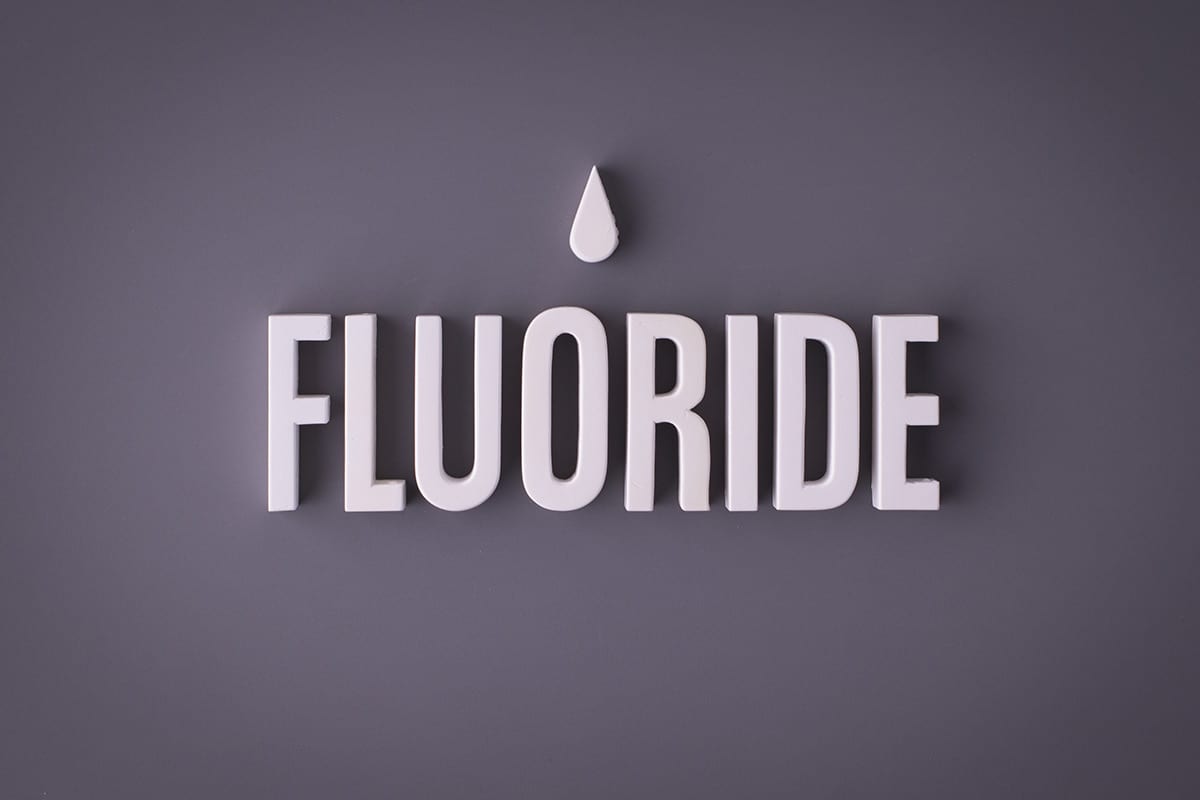When you think of a fluoride treatment at a dental visit, do you think that it is something just for kids? Well, you might be surprised to learn that fluoride treatments benefit adults too.
While children are at risk for tooth decay (cavities), the CDC reports that although untreated decay in children has declined, decay in adults has increased. That is because as we age, so do our teeth making them vulnerable to the bacteria that causes tooth and root decay.
One of the easiest ways that you can prevent adult decay is by applying fluoride to your teeth.
What is Fluoride?
Fluoride is a mineral that can be found naturally in water sources. Although levels can be found naturally, fluoride is often added to water sources to help improve public oral health.
In addition to water fluoridation, fluoride is also added to oral care products such as toothpaste and mouth rinses and can be administered as an in-office treatment in dental offices. While most adults with good oral health are at low risk for decay and can get sufficient fluoride benefits from simply brushing with fluoridated toothpaste and rinsing with fluoridated water, many adults are at higher risk for decay and may benefit from fluoride supplements.
Because adults are at risk of decay sometimes at higher rates than even children, considering fluoride supplements can be one of the best and easiest decisions for preventing painful and expensive dental problems.
How Does It Help Adult Teeth?
Fluoride has been proven to protect teeth from decay by rebuilding weakened tooth surfaces through a process called tooth remineralization in which applied fluoride is absorbed into teeth and restores lost minerals that make our teeth hard. Not only can fluoride strengthen teeth to prevent future decay, it can also help to arrest early decay, thus preventing the need to fill a tooth.
Adults can benefit from fluoride because as we age, our teeth weaken as well making them more susceptible to decay. Although remineralization occurs daily in our mouths naturally, as we age, the natural process becomes less efficient. Other risk factors can not only reduce natural remineralization but can also make our mouths host to decay-causing bacteria at higher amounts.
What are the Risk Factors for Adult Decay?
Dry Mouth
Dry mouth issues are one of the biggest and most common risk factors for adult tooth decay. Dry mouth, also called xerostomia causes a reduction in natural saliva production. Saliva is actually what helps natural remineralization of our teeth. So, without enough saliva, our teeth lose strength, thus not being repaired on their own.
Some adult medical conditions can also cause dry mouth issues such as diabetes, autoimmune disorders like Sjogren’s syndrome, chronic allergy & sinus issues, and even snoring.
Adults are also often prescribed medications that have a side effect of causing mouth dryness. In addition, using a CPAP machine can also cause your mouth to be dryer than usual.
Dry mouth not only decreases mineralization, it also makes your teeth and gums sticky, which allows decay causing bacteria to adhere more easily and become more difficult to remove with typical brushing & flossing.
Gum Recession (gingival recession):
Adults with gum recession are at higher risk for decay because the tooth that is exposed when gums are receded is your tooth root. The root surface is called cementum, which is a thinner tooth structure that decays very easily. Root decay can be more difficult to treat & manage and may re-occur even after being filled previously.
Protecting root surfaces is vital to prevent root decay.
Existing Fillings, Crowns, and Bridges:
If you have had a history of several fillings, crowns, or bridgework, you are at higher risk for decay because bacteria that cause decay can often hide in and around dental work making it harder for you to clean.
Where a filling & enamel meet or where a crown ends and the tooth begins is called a tooth margin. Bacteria can sit on those margins and cause decay.
Reduced or Poor Oral Hygiene:
If plaque bacteria sit too long on our teeth, decay can happen easily. Unfortunately, as we age, sometimes our homecare is not as good as it once was or we have obstacles such as dental work or adult braces that make homecare more difficult.
And sometimes as adults, we get so busy with life that we might forget about visiting the dentist regularly, which also puts us at higher risk for oral disease.
Smoking:
Smoking increases the risk of dental decay because tobacco use can dry the mouth and also causes a stain that allows plaque to stick easily. Smoking also increases your risk of gum recession, which is a risk factor for root decay.
History of Chemotherapy or Radiation Treatment:
If you have had cancer, the treatments can have a negative side effect in your mouth that causes reduced saliva slow or even total loss of saliva flow, which can put you at high risk for root decay.
What Kinds of Fluoride is Available to Adults?
In-office Varnish
A fluoride varnish treatment is a professional strength application of fluoride provided by your dental professional usually right after a dental cleaning. It is a fast and easy way to provide protection. The varnish is a clear liquid that is applied to your teeth and exposed roots with a small brush. The fluoride is absorbed and helps to increase remineralization.
In-office treatments are typically higher strength applications and thus need to be authorized & applied by your dental professional.
At-home prescription paste or rinses
Usually, if patients regularly accept fluoride varnish, they do not need at-home treatments. However, very high-risk patients may benefit from using prescription-strength fluoride supplements for at-home use that can be in the form of toothpaste or mouth rinse.
Is Fluoride Safe?
Yes! According to the American Dental Hygienists Association (ADHA), fluoride has been researched and proven to be safe and effective when administered and used as instructed.
Does Fluoride Have Other Benefits?
Yes! Not only does fluoride prevent decay, it can also reduce root hypersensitivity such as cold sensitivity and sensitivity during dental cleanings, which can be common with gum recession.
Does Dental Insurance Cover Fluoride Treatments?
While some dental insurance plans do cover adult fluoride treatments, some do not. If it is not covered, you may want to still consider the paying out of pocket for this simple treatment that could not only keep your teeth healthy but could also save your discomfort and costly dental work in the future.
What Else Can I Do to Protect My Teeth?
Good oral hygiene at home and regular dental cleanings & exams are what you can do to help keep your teeth strong. Knowing your risk level for decay is important to discuss with your dentist in Mechanicsburg.
If you find that you have some of the mentioned risks for adult decay, ask your dentist or hygienist if a fluoride treatment could help you and say ‘Yes’ to a fluoride treatment!
Contact us today if you’re interested in talking with our team about how fluoride treatments can help your or your family’s dental health by calling 717.963.3198 or by requesting an appointment.


